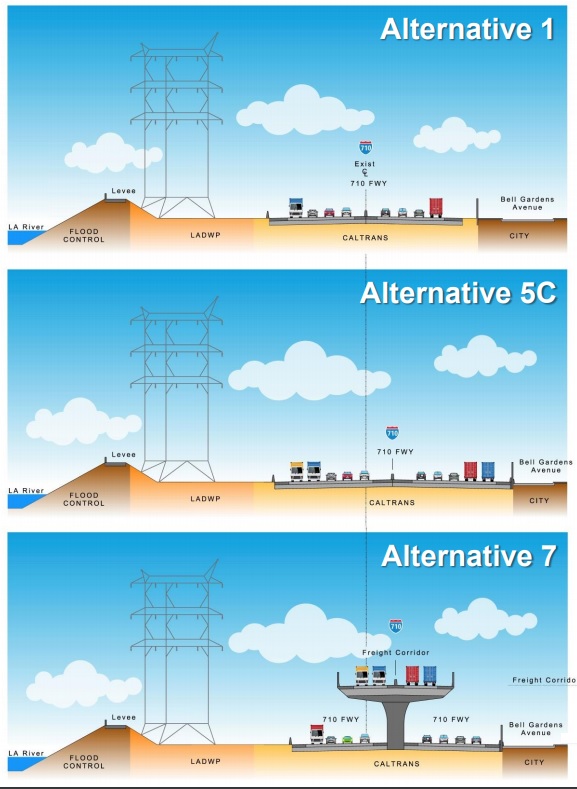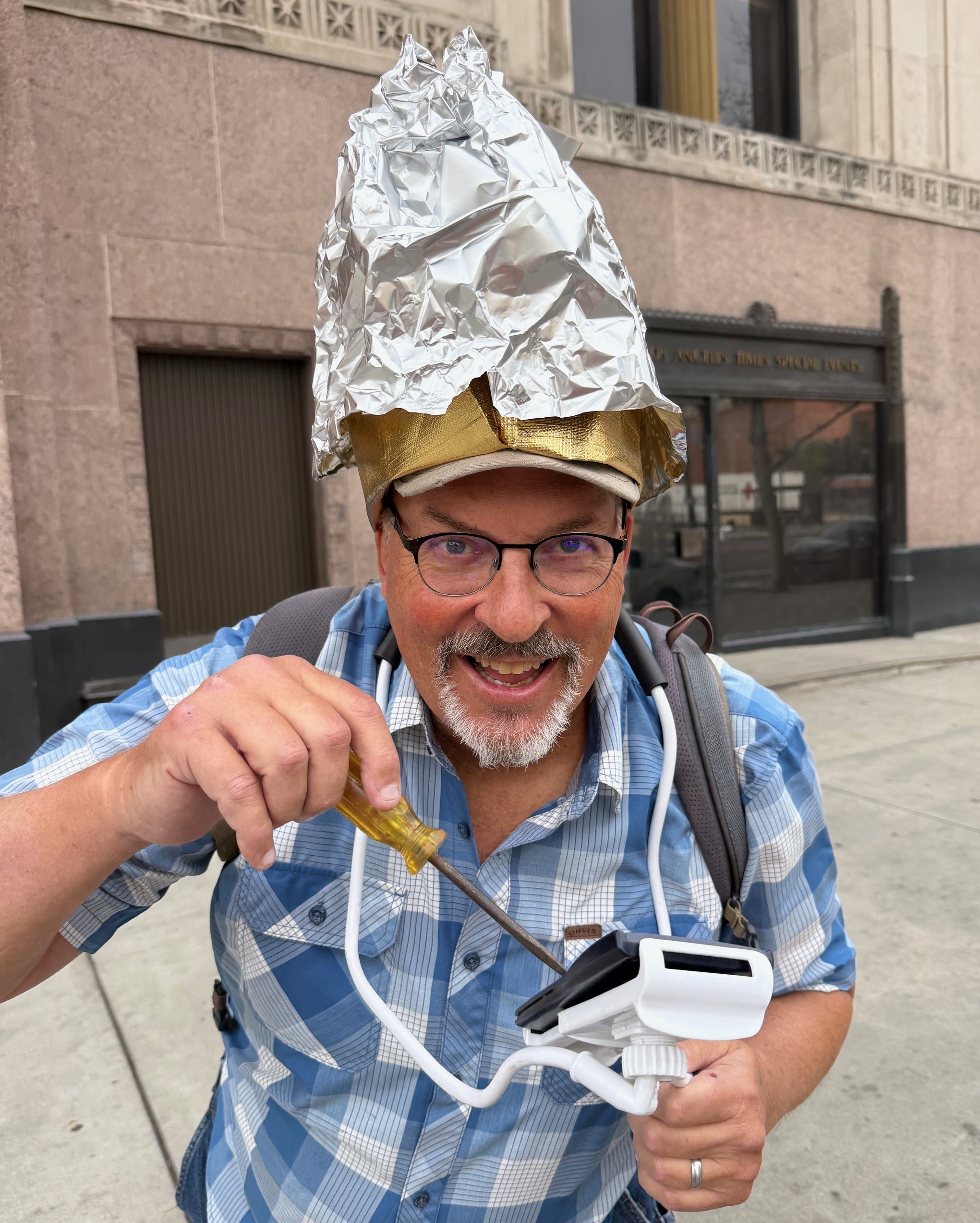Earlier today, the Metro board of directors approved the widening of the lower 710 Freeway as the "locally preferred alternative." This does not mean that the project will get built right away, or perhaps ever. As of now, the $6 billion project only has about $1.2 billion, all from Metro's Measures R and M sales taxes.
County Supervisors Hilda Solis and Janice Hahn, and Long Beach Mayor Robert Garcia - the Metro directors who represent 710 corridor communities - focused the agency to first move forward spending existing funds on a not-yet-well-defined "early action program."
Metro staff presented the 710 widening project as "context-sensitive design" with a "focus on green technology" seeking to "modernize" an antiquated freeway.
The preferred alternative "5C" is anything but modern; it looks like a project straight out of the 1950s. The 710 Freeway corridor is among the most polluted in the L.A. basin, and the project would add more car lanes. More lanes means more traffic, more congestion, more pollution, more asthma, more cancer, more death.
The Metro board knows this. Supervisor Sheila Kuehl, L.A. City Councilmember Mike Bonin, and L.A. Mayor Eric Garcetti all expressed broad criticism of freeway widening. Supervisor Janice Hahn called the area a "diesel death zone." Mayor Garcia stated that "adding lanes doesn't solve congestion."
The board heard extensive public testimony: more than 80 public comments, many more against the project than for it. Environmental justice and public health groups, largely under the banner of the Coalition for Environmental Health and Justice (CEHAJ), spoke out strongly against the widening as currently proposed. The primary concerns they expressed were pollution impacts on health, and the displacement of homes and businesses. CEHAJ is also pushing for a commitment to hiring locals; this has become a standard practice for Metro's large-scale projects, but not yet practiced by Caltrans.
Testifying in favor of the freeway expansion were the building trade unions, the ports, and several business groups.
Boardmembers offered two amending motions that sought to decrease adverse impacts of the project:
- Supervisor Hahn, with Supervisor Hilda Solis, Mayor Garcia, and director Jacqueline Dupont-Walker offered a motion to double a proposed $100 million voluntary program to incentivize clean trucks. The motion also shifted the the incentives from "near zero-" to "zero-" emissions technology.
- Supervisor Solis, with Mayor Garcia, Supervisor Mark Ridley-Thomas, Inglewood Mayor James Butts, Glendale Councilmember Ara Najarian, and Supervisor Hahn offered an extensive motion with several components. Key among these is moving forward with early action program (EAP) projects that deliver benefits to "safety, mobility, and air quality" and that minimize displacement. The motion further directs staff to return to the board to "seek further authorization" before implementing the balance of the Alternative 5C freeway widening.
Generally CEHAJ testimony countered that the amending motions did not go far enough; one commenter described them as lipstick on a pig. Mayor Garcetti responded to this characterization stating "it is a pig - it's a nice-looking pig."
Just what are the EAP projects? Metro staff pointed to a possible "modernization" of on- and off-ramps, arterials, and arterial intersections along the 710 corridor, clean truck programs, and even transit and active transportation projects. Mayor Garcia pointed to the importance of working with corridor cities to include complete streets in the EAP.
As of today, though, there is no list of proposed EAP projects. That list will be developed by the staff who spent two decades re-envisioning the 710 Freeway and could only come up with a $6B plan to widen it. It will take a lot of vigilance by 710 corridor communities and the Metro board to ensure that these "modernization" projects do not merely subject heavily impacted communities to local-scale street and ramp widening, facilitating more traffic, more congestion and more pollution.
Councilmember Bonin did make a friendly amendment that clarified that staff will bring EAP projects back to the board for approval before proceeding with them. This will allow for another checkpoint where communities and leaders can prevent harmful projects from moving forward.
The board unanimously approved both amending motions, and the staff recommendation for the $6 billion highway widening, called Alternative 5C.







